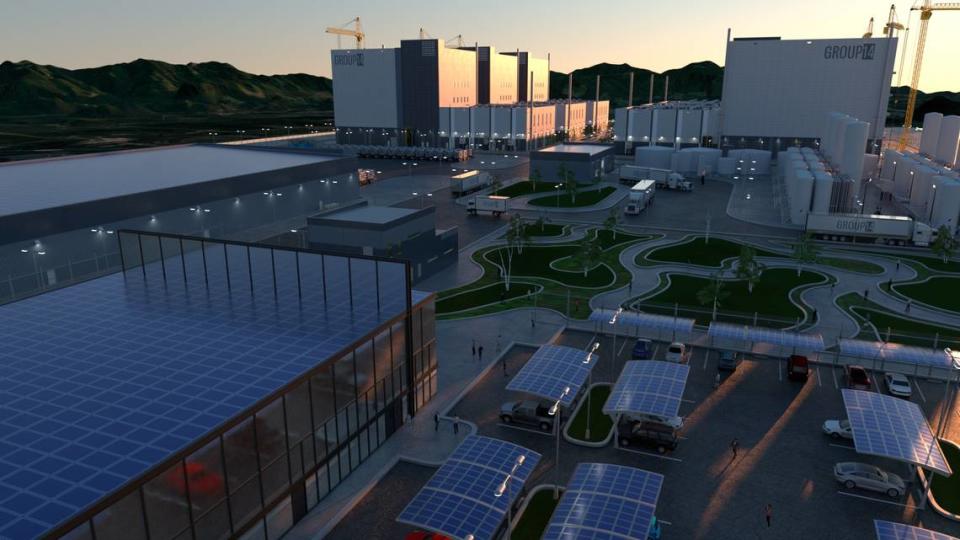2 new Eastern WA factories aim to ‘revolutionize’ the electric vehicle industry
- Oops!Something went wrong.Please try again later.
Construction is starting in Moses Lake on what is expected to be the world’s largest factory to produce advanced silicon battery materials for electric vehicles as demand for the cars grows.
Group14 Technologies announced the start of construction of the plant on Tuesday.
It is the second plant planned to produce silicon battery materials in Moses Lake.
The work at the two Moses Lake plants will “revolutionize the electric vehicle,” according to the office of Washington Gov. Jay Inslee after the governor visited Moses Lake last week.
Now, most electric vehicles use primarily graphite in their lithium-ion batteries, but Group 14 Technologies will produce materials with silicon to be used in place of graphite.
Batteries that use silicon have the potential to hold more energy and recharge more quickly.
They also should be less expensive, according to Sen. Maria Cantwell, D-Wash., who championed a Department of Energy program that resulted in grants of $100 million to both Group14 and battery materials company Sila Nanotechnologies.
“These two cutting-edge companies will not only use domestically sourced materials to make electric vehicles more affordable, they will be creating hundreds of high paying jobs that will help transform Moses Lake into an epicenter of clean energy manufacturing,” Cantwell said.

Funding for the Group14 plant comes from the DOE grant plus $614 million in backing from Porsche AG and Microsoft Climate Innovation Fund.
Group14 will partner with Clayco Inc., an engineering, design and construction group to employee about 400 people during construction in Moses Lake, according to Group14.
The plant is expected to open the first two of up to six planned manufacturing modules in 2024. It will employ 200 employees for day-to-day operations, including manufacturing workers and engineers.
The plant’s initial two modules will be capable of producing 2,000 tons per year of advanced silicon battery material.
Group14 already is operating a factory in Woodinville, Wash., making 120 tons of material annually. It also has a joint venture with a South Korean conglomerate for a factory there.
China currently produces much of the graphite used in lithium-ion batteries.
“Boosting the nation’s global competitiveness in battery manufacturing comes down to strengthening domestic supply chains, which is why we are ramping up our second U.S. factory at the speed in which we need to see innovation scale,” said Rick Luebbe, chief executive and cofounder of Group14 Technologies.

In May 2022, another battery materials company, Sila Nanotechnologies, bought a 600,000-square-foot factory in Moses Lake to produce silicon battery materials by the first half of 2024.
It plans to produce enough of the material for 200,000 electric vehicles by 2026. Mercedes-Benz will be its first commercial customer.
It expected to hire 150 to 300 technologists for the factory.
Electric vehicles accounted for 10% of new cars sold in the United States in 2022, and registration of electric vehicles increased nearly fivefold in five years in Washington state, according to Inslee’s office, quoting The Wall Street Journal.
To supply surging electric vehicle sales, the United States must ramp up its battery manufacturing capacity, according to Inslee’s office.

